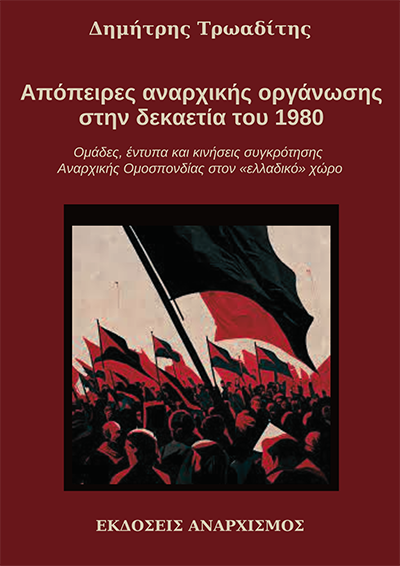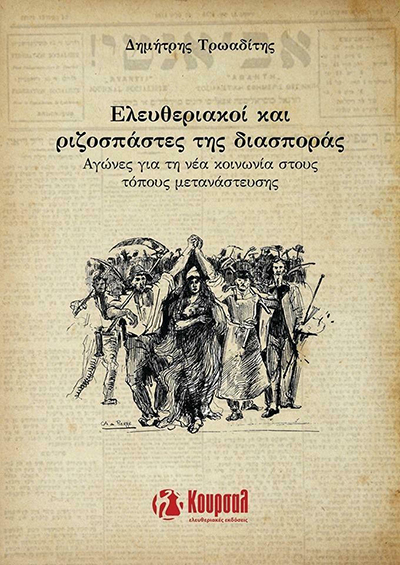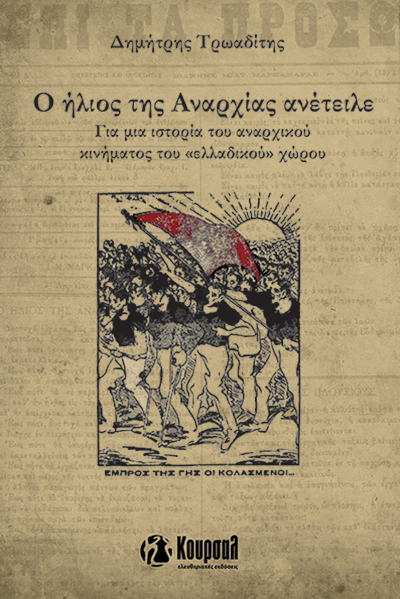- Λεπτομέρειες
- Your name
- English
Balkan Federalism - The social question and the national question in the idea of Balkan federalism
from the 19th to the 20th century: a short survey
Loukis Hassiotis
Modern Balkan history has often been presented as a sequence of nationalist conflicts, cultural and social backwardness, bloodshed and barbarism. This impression has been created partly by the West, by North American and Western European media, politicians, diplomats and academics, who traditionally portrayed Southeastern Europe as something “alien”, completely foreign to the values of Western civilization, in other words approached them through an “orientalist looking glass, to use Edward Said’s famous term. But this impression has been partly a product of the Balkans themselves, particularly of social and intellectual elites, who used these negative stereotypes for their enemies in order to present themselves as the true Europeans, the true agents of culture in the Orient.
This has been one major trend. A second, parallel one has developed over the ages as a kind of counter-narrative to the first one. This counter-narrative stressed social and cultural affinities, as well as common customs and beliefs that were the result of long inter-ethnic coexistence, a coexistence that was severed through the intervention of the Great Powers and their representatives in the area. This counternarrative, stemming from the romantic tradition, belongs primarily, yet not exclusively, to the Left and continues to this day to present itself as the alternative to official historiographies of Balkan states.
The political motivation behind this narrative is usually the support of a federalist reconstitution of Southeastern Europe and the unity of Balkan peoples with an aim to fend off foreign control and live harmoniously in the region.
It is clear today that both these narratives are equally imaginary. Not because they do not correspond to a certain aspect of reality, but mostly because they both reproduce the stereotype of “Balkan particularities”. Indeed, nationalism dominated the region and often led to bloody interethnic and interstate conflict, but this is also true of other European countries. On the other hand, there were definitely commonalities as well as differences between ethnic groups and languages, but again, this is true of the whole of Europe. But there is a further reason why both these narratives are ideological constructs: They present federalism and nationalistm as two opposing political programmes. Well, that is not precisely true.
In other words, one could say that nationalism and federalism (or generally the idea of Balkan brotherhood and unity) often converged and worked together. This is true primarily of the 19th century, which was crucial for the birth and development of nation-states in the region. Indeed, most 19th century movements that supported Balkan solidarity were fighting at the same time for national sovereignty and the liberation of “unredeemed” brothers under Ottoman or Habsburg rule. This phenomenon is hardly a Balkan peculiarity. The coexistence of national and paneuropean political programmes until the end of the century was a trait shared by all radical antimonarchists, like Giuseppe...
- Λεπτομέρειες
- Your name
- English
*This article was written by using different sources including trotskyist ones.
Agis Stinas was born in the island of Corfu (nort-western Greece) in 1900. His real name was Spyros Priftis. He started involved in revolutionary politics and action following the October Revolution of 1917, after he was encouraged by the local doctor, who had known Lenin in Switzerland and felt that for the young Stinas the best introduction to Socialism would be the reading of Hegel’s Logic and Goethe’s Faust.
Stinas became a founding member of the Greek Socialist Workers’ Party (SEKE) which changed its name...
- Λεπτομέρειες
- Your name
- English

Written by Leonardos Kottis in July 2000 on the island of Paros, Greece, as the preface of the book of K. Speras «The Strike of Serifos, that is narration of the bloody scenes of 21 August 1916 in the mines of Megalo Livadi of Serifos». This book was published in Athens, Greece, in 2001 by the Libertarian Historical Archive and the Vivliopelagos Editions.
Translation in English by Dimitris Troaditis, in February 2005 in Melbourne, Australia. Editing by Paul Pomonis. Notes by Leonardos Kottis and Dimitris Troaditis.
THE POLITICAL SITUATION OF THE PERIOD (1904-1918)
«...It was a...
- Cairo 1908: The Beauty
- The Early Days Of Greek Anarchism: ‘The Democratic Club of Patras & Social Radicalism in Greece’
- Greek Workers’ Movement in Egypt 1872-1911
- Class War and Imperialism in Greece
- Dimitris Matsalis and individual terrorism - Liopetas-Agallopoulos case
- Anarchist Giannis Magkanaras
- Dimitris Karampilias (1872-1954)
Στο κτήριο της Ελληνικής κοινότητας της Μελβούρνης στις 18/07/2019
Με τον Ελευθεριακό στο Αυτοδιαχειριζόμενο Στέκι Πέρασμα, 22/01/2018




